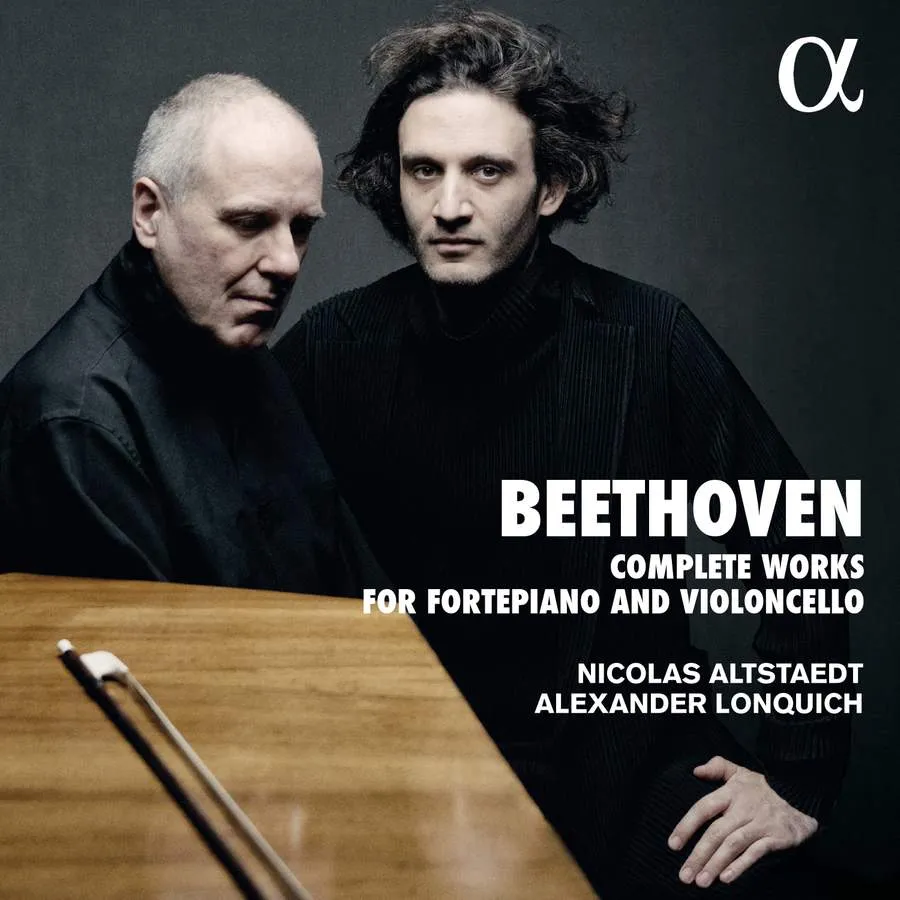
Beethoven Variations on 'See the conquering hero comes', WoO 45; Cello Sonata No. 1 in F major, Op. 5 No. 1; Cello Sonata No. 2 in G minor, Op. 5 No. 2; Variations on 'Ein Mädchen oder Weibchen;, Op. 66; Cello Sonata No. 3 in A major, Op. 69; Variations on 'Bei Mannern, weiche Liebe fühlen', WoO 46; Cello Sonata No. 4 in C major, Op. 102 No. 1; Cello Sonata No. 5 in D major, Op. 102 No. 2 Nicolas Altstaedt (cello), Alexander Lonquich (piano) Alpha Classics ALPHA 577 143:05 mins
Beethoven’s five cello sonatas make up a satisfying complete set, taking in every main period of his creative life. Op. 5 consists of a powerful pair of early works, commissioned by the cello-playing King of Prussia; Op. 69 is a vintage example of the composer’s expansive middle-period style; and the Op. 102 twosome features, in No. 2 in D major, an Adagio slow movement exploring wondrous late-Beethoven depths, followed by a finale – first a single fugue, then a double one – of near-impossible mastery.
Nicolas Altstaedt and his exceptional accompanist, Alexander Lonquich, respond to this range of demands with wide and deep resources of musicianship, convincingly enhanced by a period approach. Altstaedt’s instrument is gut-stringed; and the 1820s Conrad Graf fortepiano, remarkably full-toned and gremlin-free for the period, balances with the cello in a way that a modern concert grand wouldn’t quite, allowing Lonquich’s wonderfully alert playing to operate on the kind of equal terms Beethoven intended (although the recorded balance perhaps places the cello a shade closer than needed).
Highlights in the early sonatas include Altstaedt’s whirring high-speed passagework in Op. 5 No. 2’s finale, and the seemingly endless musical riches of the middle-period and late sonatas are memorably conveyed at every point. The three sets of Variations offer a surprise, in that the earliest – WoO45, based on ‘See, the conquering hero comes’ – turns out to be the most remarkable, with Handel’s workaday tune triggering a smile-inducing cascade of Beethovenian hyper-invention, responded to by both players in roistering style.
Malcolm Hayes